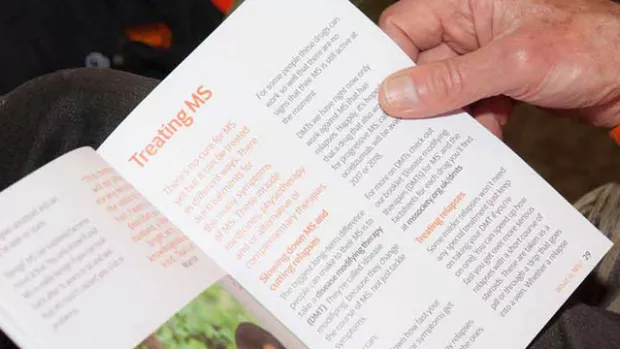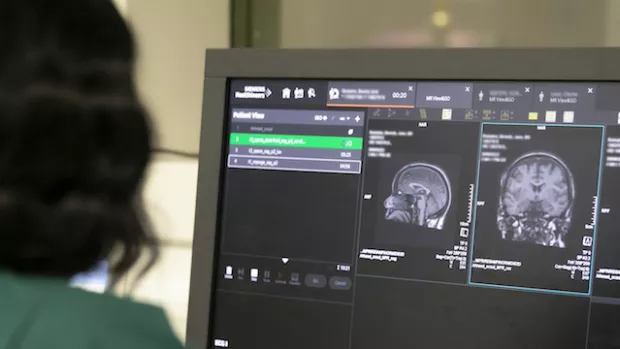
How is MS diagnosed
MS is diagnosed by your neurologist. They will use a specific checklist to diagnose MS, known as the McDonald criteria. They'll carry out a number of tests to run through the criteria, which could include blood tests and MRI.
Tests like MRI scans and lumbar punctures can be uncomfortable. So during them the medical staff will reassure you and give you as much help and support as they can.
Tests to diagnose MS
-
Examination
Your neurologist will ask you lots of questions about your health problems and symptoms, now and in the past. They'll also give you a physical examination. This will check for changes or weaknesses in your eye movements, leg or hand coordination, balance, speech or reflexes.
All this gives your neurologist a better picture of where in your brain or spinal cord the problem is. It can also identify something else behind your symptoms that's not MS.
While your neurologist may strongly suspect MS at this stage, they won't be able to give you a diagnosis until other test results confirm that it's MS.
-
Magnetic resonance imaging (MRI)
An MRI scanner uses a strong magnetic field to create a detailed image of inside your brain and spinal cord. It's very accurate and can pinpoint the exact location and size of any inflammation, damage or scarring (lesions). MRI scans confirm a diagnosis in over 90 per cent of people with MS.
To get the image of your brain and spinal cord you'll be asked to lie down and enter a small tunnel in the centre of the MRI scanner. The process can take between 10 and 60 minutes and is painless, though some people can feel a little claustrophobic in the scanner. Read 7 things to know about MRI and MS.
-
Evoked potentials tests
These painless tests are used less now than in the past but you still might have one. They measure the time it takes for your brain to receive messages or signals from your eyes, ears and skin.
To measure these signals, someone will put small electrodes on your head. These check how your brain reacts to sounds you hear in headphones or patterns you see on a screen. To measure signals between your brain and skin, electrodes will be put on your arm or leg. Signals to and from your brain will be slower if MS has damaged the myelin covering around some of your nerves.
-
Lumbar puncture or spinal tap
For this test the medical staff give you a local anaesthetic, then put a needle in your lower back. It goes into the space around your spinal cord and collects a small sample of the fluid there. This is then tested for signs of MS. People with MS nearly always have antibodies in this fluid. Antibodies are a sign that your immune system has been active in your brain and spinal cord. People who don't have MS don't normally have antibodies in this fluid.
You might get a headache after a lumbar puncture that can last several days but then goes away. Your medical team will talk to you about how to manage them.
-
Blood tests and tests for other conditions
Your neurologist might also want to rule out conditions that are similar to MS by running some other tests. These could include blood tests to check for particular antibodies, and inner ear tests to check your balance.







